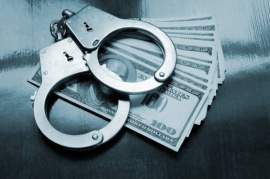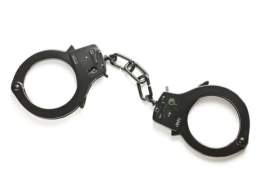
All You Need to Know About Counterfeiting Consumer Goods Enforcement

Imagine if you recently purchased a Gateway computer only to later realize that you actually spent your hard earned dollars on a "Gatewey" brand computer. Counterfeit goods, or knock offs, are everywhere, and acquiring goods of this type can really be detrimental in the long run. Fortunately, enforcement of anti-counterfeit measures is on the rise, and new legislation as well as properly orchestrated raids has helped slow the continually increasing counterfeit industry.
In February of 2010, President Barack Obama selected Victoria Espinel as the new U.S. Intellectual Property Enforcement Coordinator. The position itself was introduced by Congress two years ago as part of the Prioritizing Resources and Organization for Intellectual Property Act. In this position, Espinel is charged with overseeing the work of governmental agencies that identify and confiscate counterfeit goods. Recently, under the supervision of Espinel, U.S. Customs authorities were able to take possession of knock off toothpaste that was concocted with an excessive level of diethylene glycol, which can lead to kidney failure in significant amounts.
Other efforts are underway around the United States that are armed in the effort to eradicate counterfeit goods from the marketplace. Last December in Dallas, over one hundred thousand dollars worth of knock off clothing was seized at just one local clothing outlet. This raid was conducted by Immigration and Customs Enforcement, a governmental agency centered in Arlington, Virginia. Besides this one raid, Immigration and Customs Enforcement also engaged in forty other raids of warehouses, flea markets, and stores in the surrounding area and seized knock off pharmaceuticals and clothing that had an estimated value of more than twenty five million dollars.
More than four fifths of knock offs isolated by investigators originated in China, and the most popular counterfeit good replicated was shoes as almost forty percent of commodities confiscated represented some form of footwear.
Another advancement in law enforcement prohibiting the sale of counterfeit goods has been made by way of new legislation. The National Retail Federation has clamored for the signing of this legislation for an extended period of time, and feel that this legal statute will curtail the sale of counterfeit goods and increase their profits.
Prior to the passage of the Stop Counterfeiting in Manufactured Goods Act, it was perfectly legal for knock off packaging and labels to be distributed and manufactured provided that they were not affixed to counterfeit goods. The new legislation developed by Congress remedies this situation by deeming these items to be criminal and illegal irrespective of their attachment or lack of attachment to knock off goods.
Law enforcement and Congress have made several important strides in the battle against counterfeit goods and knock offs imported to the United States and against those produced domestically. Hopefully, the novel legislation passed by the House of Representatives and the Senate will prove a boon to businesses and an attack of counterfeiters.



















